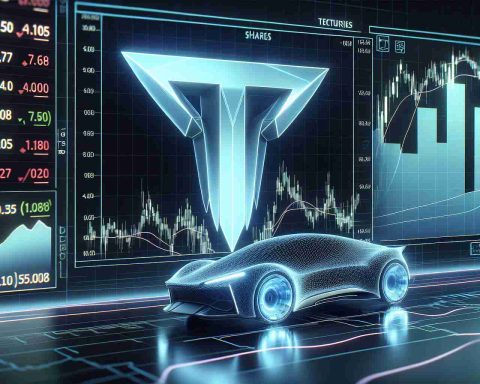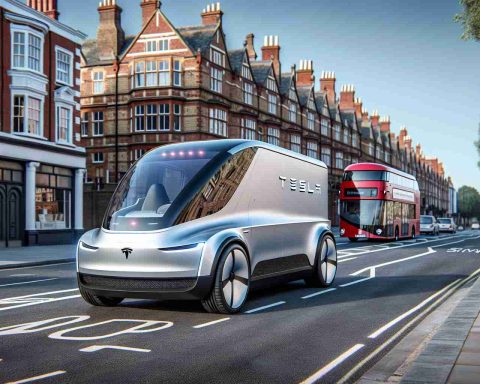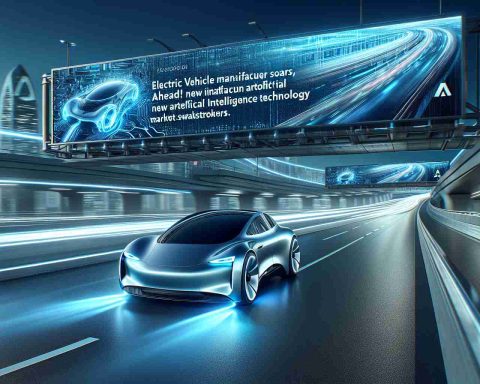Challenges Ahead for the Electric Vehicle Market
Recent developments indicate that the UK electric vehicle (EV) market may be on shaky ground, despite reaching sales targets last year. Pod Point, a leading charging provider, reported that its revenue from charger sales and services fell short, achieving £53 million against a projected £60 million for 2024. This downturn has resulted in a significant drop in their stock price, which plummeted by one-third.
With car manufacturers grappling with slow sales, especially in the electric segment—which often comes with a higher initial price—many are urging the UK government to ease stringent sales quotas defined in the zero-emission vehicle (ZEV) mandate. Currently, manufacturers are obligated to increase electric car sales to meet targets set at 22% for 2024, rising to 28% this year, but these rules have some built-in flexibilities that allow for reduced penalties.
A spokesperson from the Department for Transport confirmed that the flexibility provisions mean all manufacturers are likely to meet their targets, avoiding hefty fines. However, organizations like T&E are advocating for stronger rules, insisting these regulations foster a healthier marketplace.
Pod Point’s CEO pointed out that the stagnant EV market poses challenges for charger sales, with predictions indicating tough times ahead in 2025 unless the outlook improves. While the government highlighted a record 382,000 EVs sold in the previous year, industry leaders remain concerned about future demand and profitability.
Broader Implications of the Electric Vehicle Market’s Challenges
The current turbulence in the UK electric vehicle (EV) market not only influences automotive manufacturers but also echoes through society and the global economy. With rising uncertainty surrounding EV sales, consumers may face higher prices and limited choices, potentially dampening enthusiasm for sustainable transportation. As major players stall, the consumer confidence that comes with a booming market may wane, thus impacting the adoption rate of renewable technologies across other sectors.
On a geopolitical level, the pivot to electric vehicles was part of a broader strategy to reduce carbon emissions and mitigate climate change. Should the UK market falter, this could send ripples through global supply chains, particularly for crucial minerals like lithium and cobalt, which are essential for battery production. As key players reconsider their investments, the push for energy independence may lose momentum, exposing nations to increasing global competition for limited resources.
Additionally, environmental ramifications cannot be overlooked. A slowdown in EV adoption may delay critical advancements needed to achieve carbon neutrality goals, exacerbating air quality issues in urban areas. Future trends may see a revival of fossil fuel reliance, which contradicts decades of climate progress.
As industry watchdogs emphasize stricter regulations, the long-term significance of this predicament will largely depend on whether innovation can meet the prevailing demand for more affordable, accessible, and sustainable transport solutions. The resilience of the EV market is critical not only for the automotive industry but for cultivating a greener society.
Is the Electric Vehicle Market Facing a Crisis? Discover the Challenges and Future Outlook
Challenges and Opportunities in the UK Electric Vehicle Market
The UK electric vehicle (EV) market has reached notable milestones, yet recent developments suggest it may encounter significant hurdles moving forward. Pod Point, one of the leading EV charging providers, recently reported disappointing revenue figures from its sales and services, earning £53 million against a projected £60 million for 2024. This shortfall has considerably affected its stock, leading to a decline of one-third in price.
Despite the progress in EV sales, particularly a record 382,000 vehicles sold last year, the sector faces challenges that could impact future competitiveness and sustainability. Below, we explore key aspects of the UK EV market, delving into its current state, predicted trends, and broader implications.
Current Market Dynamics
1. Sales and Regulations
The UK’s zero-emission vehicle (ZEV) mandate imposes specific targets on manufacturers, requiring that 22% of new car sales be electric in 2024, increasing to 28% thereafter. However, there are flexibilities in the regulations that may prevent manufacturers from incurring heavy fines if they fall short of these quotas. This flexibility could create a perception of complacency within the industry, with manufacturers hesitant to innovate aggressively.
2. Financial Performance
Despite the promising sales figures, the financial performances reported by companies like Pod Point indicate that profitability remains a major concern. A growing number of manufacturers are urging the government to reconsider the current quota system, fearing it might not be sustainable in the short term.
3. Future Predictions
Experts predict that if the EV market does not recover, the ramifications could be dire. There are concerns that without significant improvements, the year 2025 might witness stagnation in charger sales, further complicating the infrastructure needed to support EV growth.
Pros and Cons of the Current EV Market Situation
Pros:
– Increased Adoption: Record sales of EVs point to a growing acceptance and willingness among consumers to transition to cleaner vehicles.
– Government Support: The UK government is committed to reducing carbon emissions, which supports the ongoing shift towards electric mobility.
Cons:
– Regulatory Pressure: Stricter regulations and sales quotas could deter manufacturers from investment and innovation.
– Market Saturation: Some experts warn of potential market saturation due to rapid growth, leading to lower profitability.
Innovations and Trends in Electric Vehicles
The EV market is also witnessing rapid technological advancements. Innovations such as improved battery technologies, greater range capacity, and increased charging speed have the potential to enhance consumer confidence and drive sales. Additionally, sustainability trends are influencing manufacturers to adopt greener production practices.
Limitations of the Current EV Market Framework
Despite growth, the current structure of the EV market has limitations:
– High Initial Costs: The upfront price of electric vehicles remains a barrier for many consumers.
– Infrastructure Gaps: The existing charging infrastructure may not be adequate to support a massive surge in electric vehicle usage.
Future Insights and Market Predictions
As the UK navigates these challenges, several predictions stand out:
– By 2025, advancements in battery technology are expected to reduce costs, making EVs more accessible.
– Increased collaboration between manufacturers and stakeholders may spark innovation that better aligns with consumer needs and regulatory expectations.
In conclusion, while the electric vehicle market in the UK has made impressive strides, attention to current challenges and a proactive approach toward solutions and innovation will be essential for sustaining growth and meeting future demand for electric vehicles.
For more insights and detailed reports on the EV market, visit Pod Point.


















